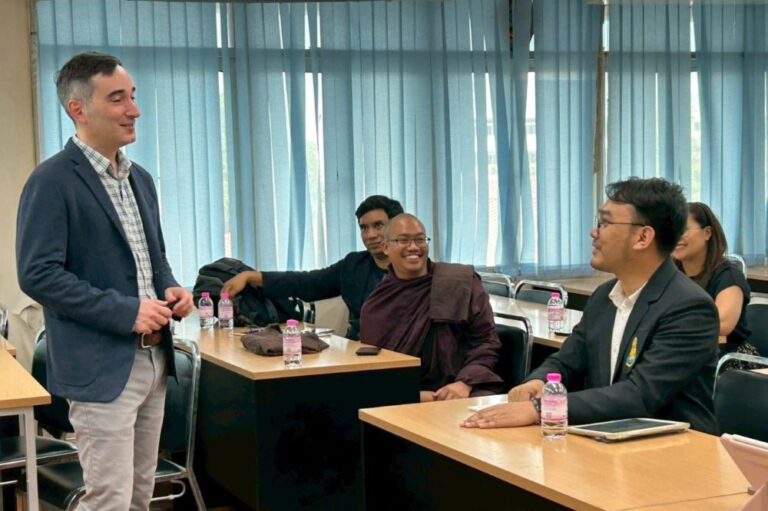This year’s Global Digital Humanities Symposium at Michigan State University will, in large part, focus on ethical Artificial Intelligence with each of the three keynote speakers planning to address the topic.
Bill Hart-Davidson, Professor in the Department of Writing, Rhetoric, and Cultures at Michigan State University and Associate Dean for Research and Graduate Education in the College of Arts & Letters, will give the in-person keynote address. His address, titled “Mixing and Mastering Genre Signals: Generative AI, Writing, and the Near Future of Writing Technologies,” will take place on Friday, March 22.

“I will offer a perspective on generative AI applications and the large language models (LLMs) at the heart of these informed by theory and research from digital writing studies. My goal is to offer an explanation of the affordances and limits of LLMs, especially those that rely on a transformer architecture,” Hart-Davidson said. “My aim is to present some near-future possibilities that can animate and energize DH scholarship because of the unique and valuable contributions the DH community has to contribute.”
Other keynote speakers include Rachel Adams, Principal Investigator of the Global Index on Responsible AI and the AI4D African Observatory on Responsible AI, and Sara Morais dos Santos Bruss, a cultural and media theorist and curator at the HKW, Haus der Kulturen der Welt in Berlin. Alex Gil, Senior Lecturer II and Associate Research Faculty of Digital Humanities in the Department of Spanish and Portuguese at Yale University, is the keynote respondent and will offer a response to the virtual keynotes by Adams and Bruss. Gil also will moderate a conversation between Adams and Bruss.
“We are excited to see the community come together virtually and in the MSU Library, building from the community work that’s been undertaken behind the scenes over the past year.”
Kristin Mapes, Co-Chair of the Symposium
This year’s symposium will feature speakers from multiple universities across the United States as well as speakers from around the world, including Brazil, Mexico, the Netherlands, Spain, Canada, Columbia, Italy, Argentina, Kyrgyzstan, Germany, Nigeria, and the Czech Republic.
“The success of the symposium has relied on the nearly 50 reviewers who evaluated the over 100 submissions, as well as the planning committee, which includes people from several institutions around the world,” said Kristin Mapes, Co-Chair of the symposium. “We are excited to see the community come together virtually and in the MSU Library, building from the community work that’s been undertaken behind the scenes over the past year.”
This is the ninth annual Global Digital Humanities Symposium and the second year in a row where it will offer a combination of virtual and in-person events. The 2024 symposium will occur as a synchronous virtual event March 18-20 and as an in-person event March 22-23.
For a complete schedule of activities, see the Global Digital Humanities Symposium 2024 website.
The Global Digital Humanities Symposium is made possible through multiple MSU sponsors, including H-Net, the Center for Latin American and Caribbean Studies, the Graduate School, MATRIX: Center for Digital Humanities & Social Sciences, the Ethics Institute, the African Studies Center, the Canadian Studies Center, and MSU Libraries.
Hosted by the Digital Humanities program at MSU, the symposium is free and open to the public, but registration is required for both the virtual and the in-person symposium. Registration closes on Monday, March 11.


